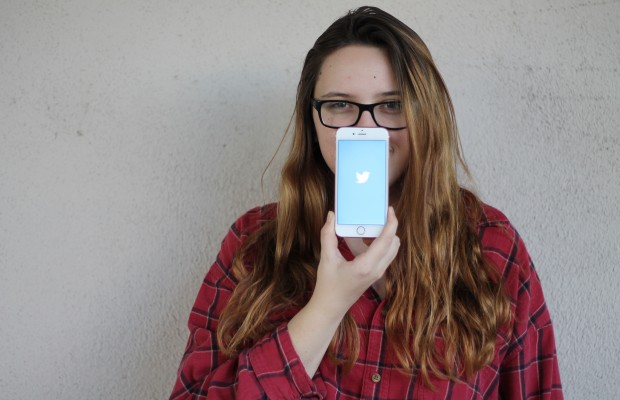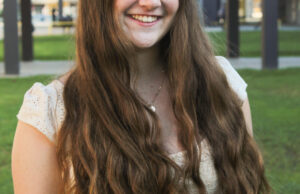Follower is the new leader

Hi, my name is Kellie, and I can’t stop saying the phrase “kicking it.” If you’ve interacted with me in the last month, you’ve heard me repeat this phrase, among others like “I feel” or “I mean I guess.” Whether I’m being told to do something at work or having a conversation about the merits and flaws of organized religion, these words will slip out of my mouth.
I didn’t just wake up one day addicted to this imprecise language; it was a gradual process. It began this summer, as I spent an ample amount of time with my friend and coworker extraordinaire Alex. The more time I spent with him, the more I noticed his slang being integrated into my vocabulary. By the time I noticed it, it was too late, I was kicking it with Alex every day, and, I mean I guess I just couldn’t stop, do you feel me? Life.
But this evolution of language didn’t just start and stop with me. Other friends started to pick up on it, and while it was originally to make fun of my new vocabulary, it became integrated into their day to day slang. And thus an endless chain of imprecision began.
While this may not be the most intellectual example to illustrate the concept, it demonstrates how culture, language, and ideas spread through socialization. Sometimes the tendency to pick up on the habits of people in one’s life is seen as a bad thing. It’s seen as something that puts you into the category of “follower” while all of the people who will go on to change the world are in the category of “leader.”
However I disagree with the strict dichotomy between leader and follower that has been pushed on us since the days of line leaders in elementary school. The reality is that the world is a collaborative community of people who form each other’s character through shared experiences and mixing of interests and beliefs.
This concept is best illustrated by the world of Twitter. In this world, we are all both the followers and the followed. Our timelines are impacted by who we follow (follow me @kellierlevine) and we influence those who follow us. But similar to real life friendships, it doesn’t start and stop with our squad. With the click of a retweet button, we continue the chain of influence. Something we were influenced by goes on to influence others, even if it’s something as simple as someone’s selfie.
Both Twitter and IRL friendships foster dynamics that allow both roles to be explored simultaneously, which is why choosing friends wisely is seen as so important. As Greek playwright and noted friendship enthusiast Euripides wrote, “judge a man’s nobility by the company he keeps and how he behaves to others.” Or, to use the much more eloquent and widely used saying, “you are what you eat.”
While I’m not suggesting that you eat nice people so you become a nice person, it’s not something too far off. Eating healthy food makes your body healthy; having positive friends makes your attitude positive. These similarities don’t occur because people are mindless followers, they occur because we are all incomplete and dynamic individuals who adapt and change with new circumstances and perspectives. So while at times my vocabulary becomes less than refined based on the company I keep, my life as a whole improves.
Photo by Samantha Meyer/Prowler


